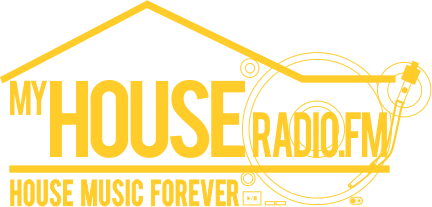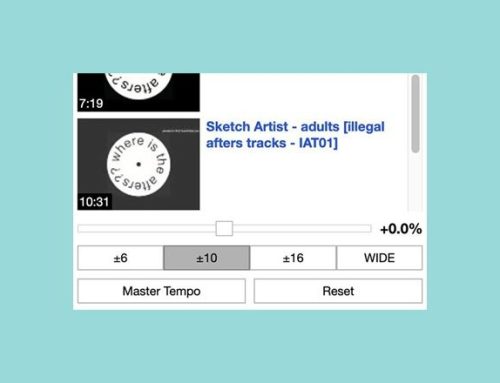
What do you know about Michael Ezebukwu? One of the legendary, most obscure original Chicago House DJs mounts a comeback.
EVERY SO OFTEN, AN old school head who has been in the House scene for at least 10 years or more would mention the name Michael Ezebukwu to me. Words such as “fabulous”, “amazing” and “legendary” were tagged to his name. They have mentioned him in the same breath as Ron Hardy, Frankie Knuckles, Larry Levan and the members of the Chosen Few DJ crew.
…And then he disappeared. Apparently after an impressive DJing career here in Chicago in the earliest of the early days of what we would later come to know as House music, Michael suddenly fell out of the music scene.
Michael began his DJ career in 1977, and throughout the ’80s and ’90s influenced many of Chicago’s up-and-coming House DJs and producers with his aggressive and eclectic mix of music. He graced venues such as the Clubhouse, LaRays, Rialto’s, Sauer’s and Dingbats and many more that would become known by street names and numbers, the long-gone landmarks of the Chicago House music scene.
Speaking of Michael, Frankie Knuckles once said that he “was and is a very rare talent,
Robert Williams, the owner of The Music Box and Powerplant, agrees. “Mike Ezebukwu was a pioneer and valuable contributor to the House music scene. His contributions to our scene was equally as valuable as Ron Hardy’s, Frankie Knuckles’, and his other DJ peers.”
“Michael is one of those DJs who knew how to break a new record,” says DJ, producer and Body Music Chicago label head Ron Carroll. “Listening to him at the Clubhouse, hearing these songs that I’ve never heard before but being played with such aggression made me understand who he was, and is today: a pure legend. To me, Michael was just as high as Frankie and Ron in his own right, and I was pleased to have played with such a person. I love Mike.”
Recently, Mike marked his return by playing at the Sense Production’s Thanksgiving Eve party at Four (along with fellow January cover boy and friend Ron Trent) and wowed the expectant crowd. He will soon be playing in select cities around the country until WMC 2007, then plans to be in the studio throughout the rest of the year to work on a few projects and remixes, adding to his credits which already includes remixes of Loleatta Holloway’s “Hit and Run 88, Gotta Be the One”, The Answer’s “The Line” and Marshall Jefferson’s “House Music Anthem”.
Where did Michael go? Where did he come from? All of these questions can now be answered. 5 Magazine sat down for a quick phone chat with Michael in mid-December 2006, fresh off his comeback party at Four.
Can you tell us briefly about your background and how you started?
I started spinning records around May or June of ’77. My first club gig was at The Private Sculpture. It was a small, intimate club.
Who taught you how to spin?
I just picked it up myself. I had gone to Columbia College and was majoring in Radio and TV Broadcasting. Simultaneously I was going out to nightclubs.
Who were some of your peers at that time?
Well as a matter of fact, Ron Hardy was spinning at the same time at Den One [Ron’s pre-Music Box residency on Chicago’s Northside]. But we didn’t actually meet until around 1980.
And Frankie Knuckles?
From the Warehouse. We were also both in the same record pool.
What do you think of the parties going on now as compared to then?
I guess the parties now are more tame, I’d have to say. Psychotropic drugs back then were more in fashion. Plus Chicago as a whole had fewer restrictions with the parties back then. Clubs could close at 7am, as long as they didn’t serve alcohol.
So how would you describe your musical style on the tables?
It’s a combination of everything. I guess back in the day there wasn’t just one brand of music. The DJs played a wide variety of music then: high energy, pop, R&B.
So this is the question that a lot of people have asked. When and why did you suddenly disappear?
Around 1999, I kind of went on sabbatical. I had been spinning from 1977 through 1999, and I’d probably been out of work DJing for only three, maybe four months total. I just needed a change, I felt like I kinda got burned out. There were certain times when I would be spinning almost seven nights a week.
So tell us about your big comeback. I know your first gig since you disappeared was at the Sense party Thanksgiving Eve at Four.
Well I had been without a phone for quite a while. Bernard Badie had told me that Tone of Sense Productions was interested in working with me. He had heard me at a party in the early ’90s, at this party with Bad Boy Bill.
So you literally had no phone, no way for people to contact you?
Yes. Because my mother, she had Alzheimer’s. So when I stopped spinning, I stayed at home to take care of her.
Were you still listening or spinning House music during your hiatus?
No. I watched a lot of television. [laughs] I wanted to take a break from it because at certain times I’d go to sleep in total silence, but then there’d always be some sort of melody running through my head.
How does it feel like to be back?
It was like I never left. A few of my friends came. Bernard Badie came and I broke in his new track with Dajae.
So listening to today’s House music with a fresh ear, what are your thoughts on it?
The way it’s going now … It’s kind of like “one beat fits all”. One melody fits all. There’s no range. It’s the same kind of tempo, same kind of mood.
What are your plans now? You have more gigs lined up and some remix projects?
Tone from Sense Productions is working on it. It’s been a real joy working with him because he’s kinda crazy, kinda out there type of manager. But he gets the job done! My hat really goes off to him, because he opened up the doors for me.
So was this all by chance, or were you ready to go when he first contacted you to come back and spin?
I had gotten to the point where my decision to play records again would come naturally. Everything just worked out. I still have the same feeling I had when I first started.
>> https://5chicago.com/features/michael-ezebukwu-interview/





